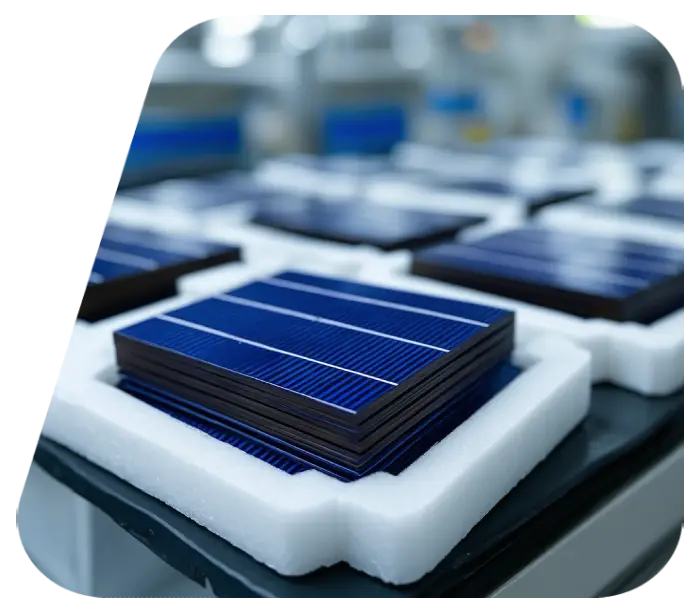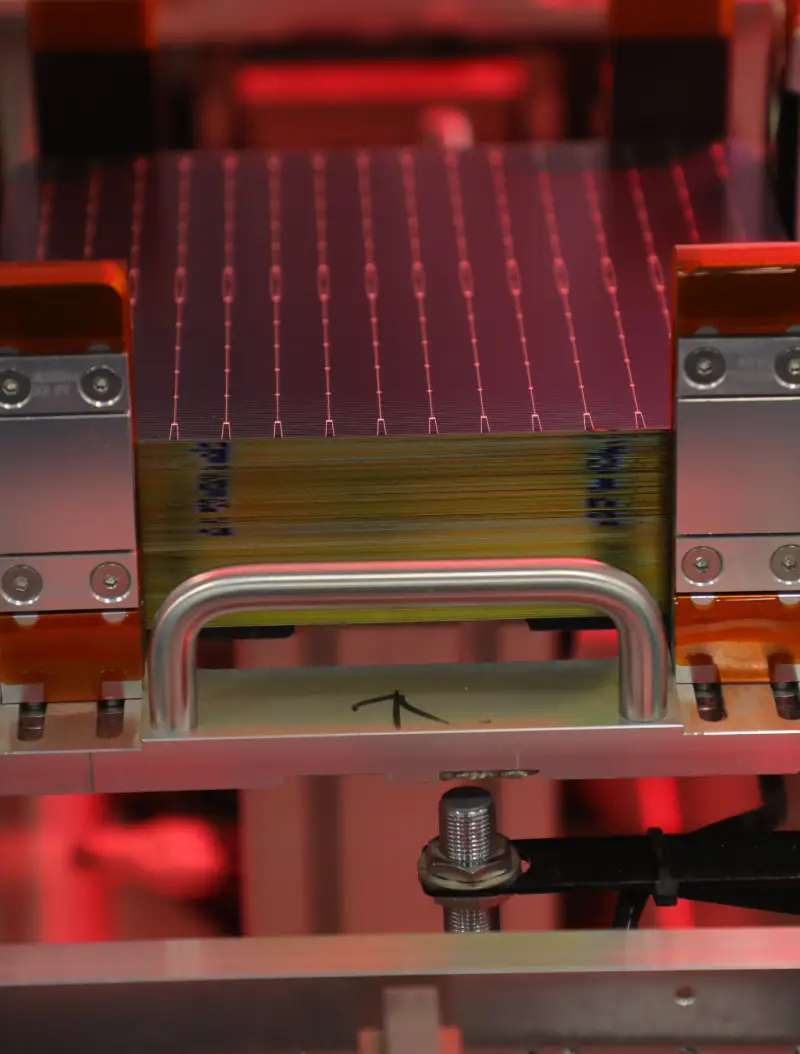
About Solar Cell Manufacturing
SAEL is poised to further strengthen its renewable energy value chain through the development of an advanced solar cell manufacturing facility in Greater Noida. This upcoming plant represents a strategic move toward backward integration, ensuring greater control over quality, supply reliability, and technology adoption within the solar ecosystem.
The facility will feature state-of-the-art automation and focus on high-efficiency N-Type TOPCon cell technology, enabling SAEL to support both its own module production and the broader market's evolving needs. Sustainability and operational excellence will remain central to all processes, in line with SAEL's commitment to responsible growth and innovation. Projects

